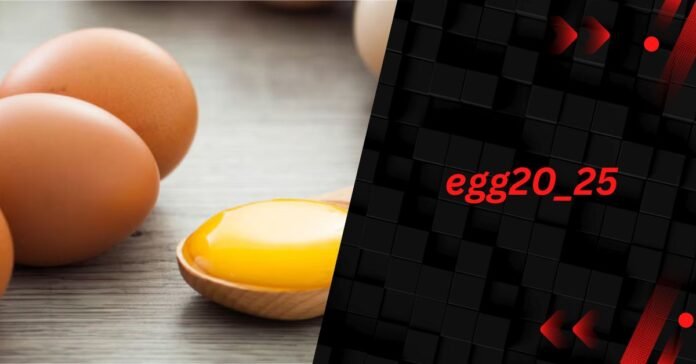Egg20_25, a term that has gained significant attention in recent years, refers to a hypothetical scenario where the global egg supply becomes severely limited or nonexistent by the year 2025. While this may seem like a far-fetched concept, it has sparked discussions about food security, alternative protein sources, and the potential impact on global economies.
Understanding Egg20_25
The term “Egg20_25” originated from various online discussions and social media posts, highlighting concerns about the potential decline in egg production. These concerns stemmed from several factors, including:
- Disease outbreaks: Avian influenza and other diseases can lead to mass culling of poultry, significantly reducing egg production.
- Environmental factors: Climate change, extreme weather events, and rising feed costs can impact poultry farming and egg production.
- Global supply chain disruptions: Economic downturns, geopolitical tensions, and logistical challenges can disrupt the flow of eggs and poultry products.
Potential Consequences of Egg2025
If the Egg20_25 scenario were to materialize, it could have far-reaching consequences for global food systems, economies, and consumer habits. Some potential impacts include:
- Food shortages and price increases: A decline in egg production could lead to shortages and higher prices for eggs and egg-based products, impacting consumers and businesses.
- Nutritional deficiencies: Eggs are a valuable source of protein, vitamins, and minerals. A shortage could lead to nutritional deficiencies, particularly in populations that rely heavily on eggs for their dietary needs.
- Economic disruptions: The egg industry is a significant contributor to the global economy, providing jobs and revenue. A decline in egg production could have negative economic consequences for farmers, food processors, and related industries.
- Shift to alternative protein sources: In response to egg shortages, consumers and food manufacturers may turn to alternative protein sources, such as plant-based products, insects, or cultivated meat.
Addressing the Egg20_25 Concerns
While the Egg20_25 scenario remains hypothetical, it is essential to consider strategies to mitigate the potential risks and ensure a sustainable egg supply. Some potential approaches include:
- Disease prevention and control: Implementing effective biosecurity measures, vaccination programs, and early detection systems can help prevent and control disease outbreaks in poultry populations.
- Sustainable farming practices: Adopting sustainable farming methods can help improve the resilience of poultry production systems to environmental challenges and reduce the reliance on external inputs.
- Diversification of food sources: Encouraging consumers to diversify their diets and explore alternative protein sources can help reduce the impact of egg shortages.
- Research and development: Investing in research and development to improve poultry genetics, develop new feed formulations, and explore innovative egg production technologies can help enhance the sustainability and resilience of the egg industry.
- Global cooperation: Promoting international cooperation and collaboration among governments, industry stakeholders, and research institutions can help address global challenges related to food security and egg production.
Conclusion
While the Egg20_25 scenario may seem alarming, it is important to approach it with a balanced perspective. By understanding the potential risks, implementing preventive measures, and exploring alternative solutions, we can work towards ensuring a sustainable and resilient egg supply for future generations.
